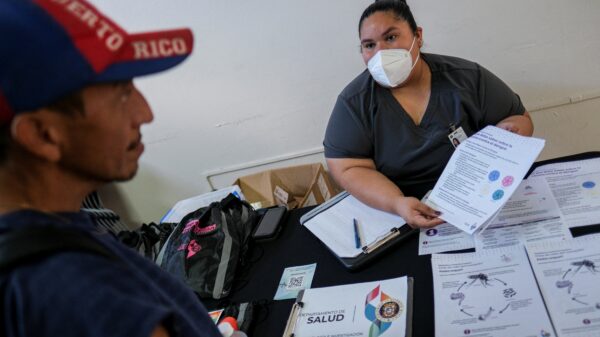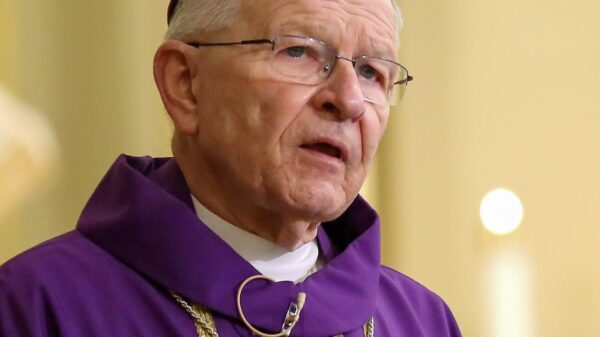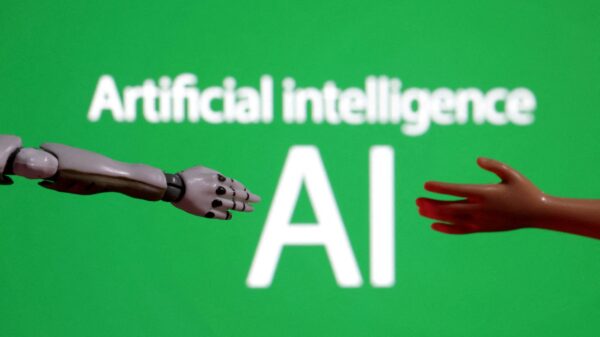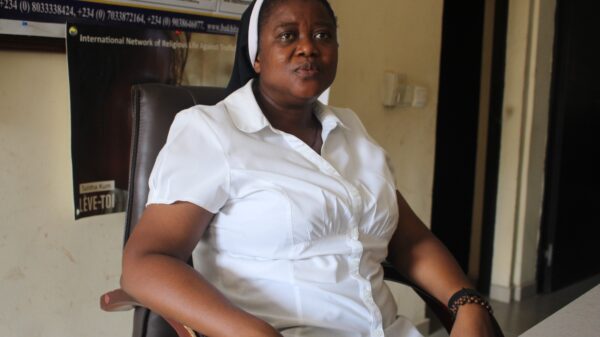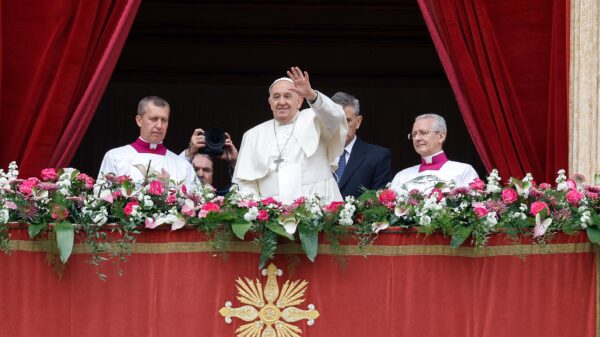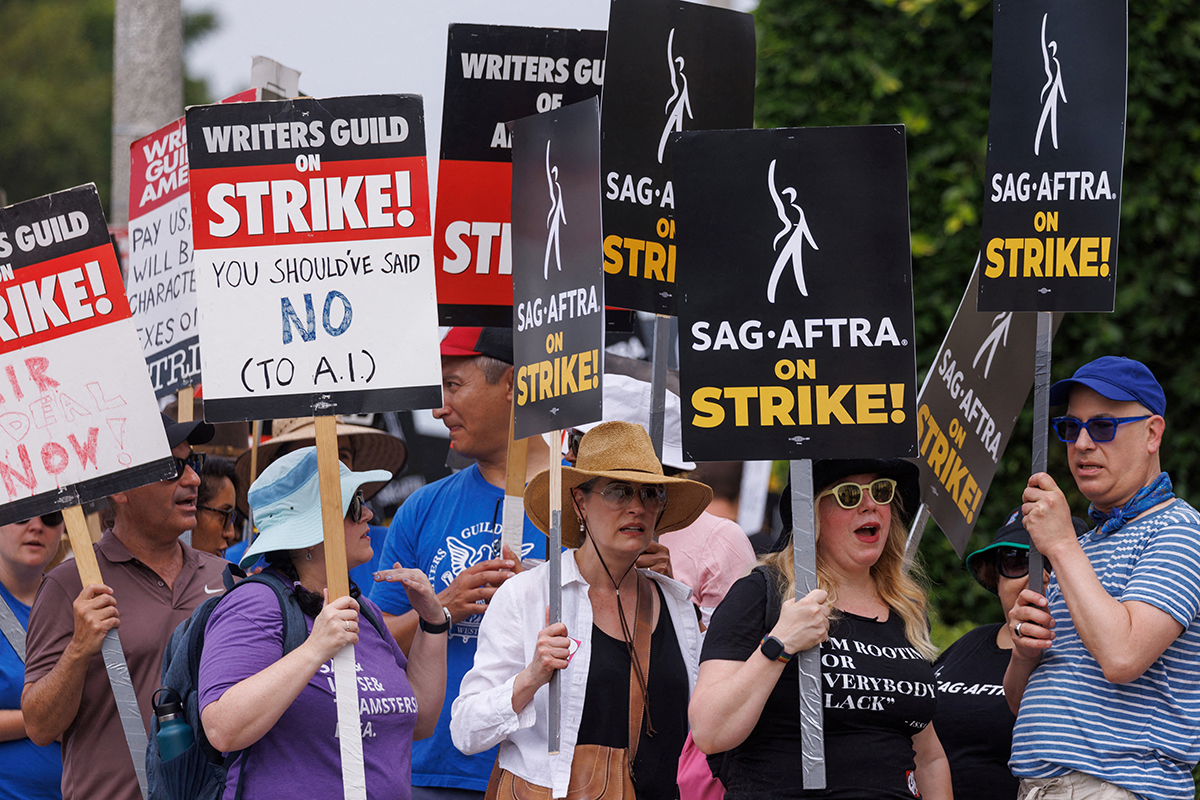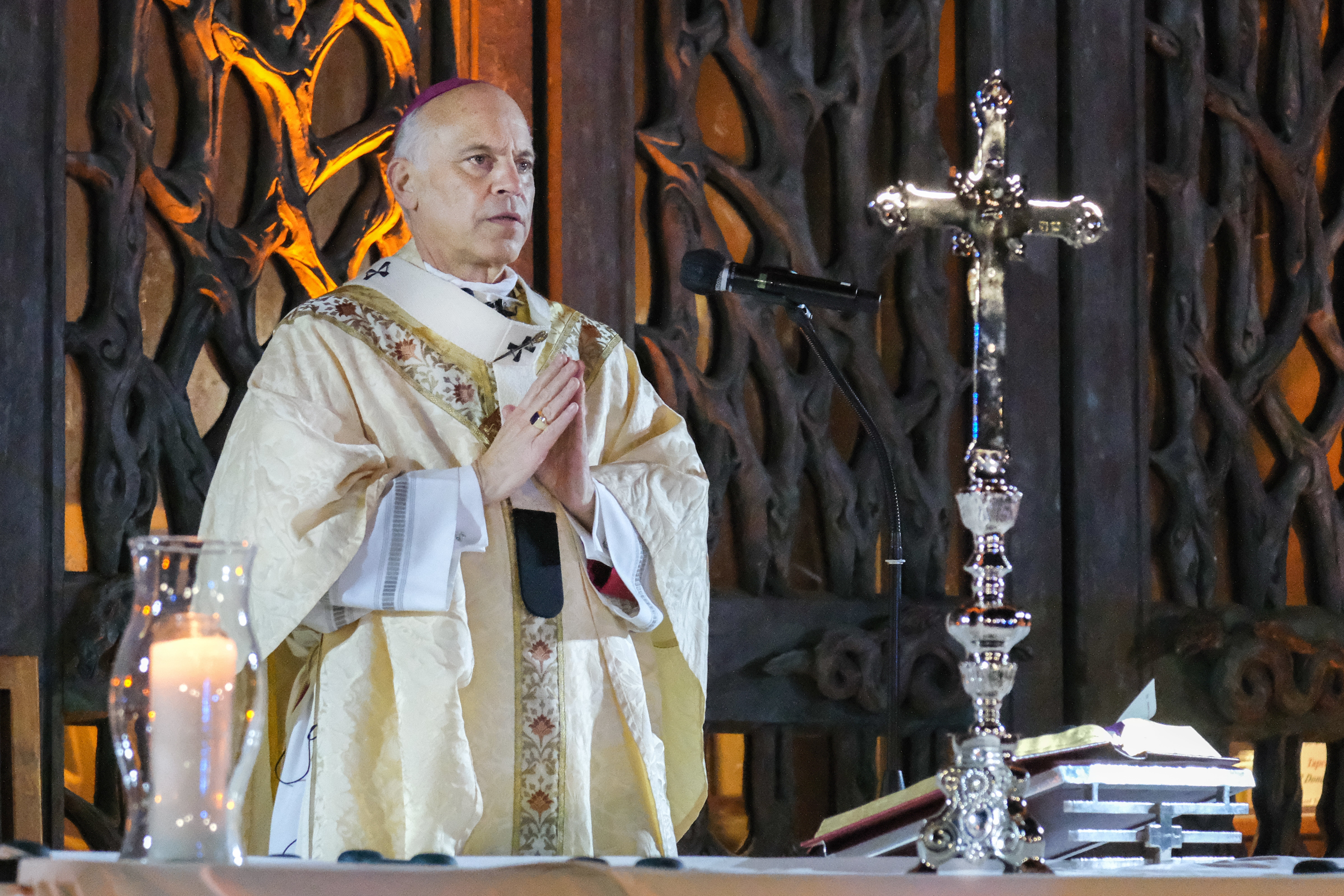(OSV News) — When the public face of a Hollywood strike consists of famous — and presumably well-compensated — actors brandishing picket signs, it’s easy to assume the matter is an internal business struggle over the pay and benefits to be enjoyed by a cultural elite. In the current instance, however, that would be a mistaken impression.
Observing the walkout by the Writers Guild of America and the Screen Actors Guild – American Federation of Television and Radio Artists – the first “double strike” by two entertainment unions in decades — many may only be concerned about a future paucity of film and TV fare. Yet, the dispute involves at least one issue that affects everyone.
The 160,000 actors and 11,500 screenwriters involved in the action against the Alliance of Motion Picture and Television Producers are concerned about two interrelated threats to their livelihood. Namely, the advent of Artificial Intelligence and its consequences for the right to residual payments they’ve enjoyed for over 60 years.
The latter problem, involving compensation for a one-time appearance on a TV show or in a film as often as the production is shown or broadcast, may seem parochial; the former most certainly is not. Every single member of the working population, whatever his or her profession, may ultimately feel the effects of AI.
While AI is a long way from being perfected, it’s already possible for producers to insert the digital image of an actor into a scene, and to avoid paying for that image either then or ever. On traditional stations or cable networks, moreover, film reruns are easy to track. But for streaming services such as Netflix, data on who’s watching what remains secret.
“The entire business model has been changed by streaming, digital, AI,” SAG-AFTRA president Fran Drescher observed when announcing July 13 that her union would be joining the two-month-old WGA strike. “This is a moment of history that is a moment of truth,” she continued.
“If we don’t stand tall right now, we are all going to be in trouble, we are all going to be in jeopardy of being replaced by machines,” Drescher concluded. So grave is the situation that Stephen Winer, a former writer for David Letterman, told OSV News that Drescher’s face, as she spoke, looked like that of “someone who had peered into the heart of darkness.”
This is SAG-AFTRA’s first strike since the summer and fall of 1980. The last one concerned profit-sharing for revenue from home media releases.
The right of workers to form unions and bargain collectively has been part of Catholic social teaching since at least the 1890s. So it’s no surprise that — even in the early stages of what looks to be a prolonged work stoppage — Catholic authorities on labor have weighed in on the fearful prospect of technology replacing human industry in nearly every field.
What seems like desperation on the part of strikers may not work in favor of the producers, said Joseph McCartin, a historian at Georgetown University and executive director of the Kalmanovitz Initiative for Labor and the Working Poor. “Because the AI challenge is so real, the producers’ position is galvanizing the ranks of writers and actors,” he told OSV News.
“Solidarity can make it impossible for the producers to make any content. So it’s a true standoff, and the union side sees it as a more existential battle than does management in a way that favors them.”
“The movement of technology will go forward no matter what we think or do,” remarked Father Sinclair Oubre, spiritual moderator for the Catholic Labor Network and pastor of St. Francis of Assisi parish in Orange, Texas. “There are people who live by the philosophy of, ‘If you can do it, you will do it.'”
“Fears have been raised about genetically engineered children, and though concerns and policies have been established in the United States, numerous countries are active in this abuse of the dignity of the human person.”
“Technology is neither good nor bad. The morality comes with how it is used. So, the question is how can this new technology be introduced while manifesting respect for the well-being and livelihood of the writers and actors.”
Father Oubre said the producers have two choices: “Follow the usual path, dump the writers and actors, collect the extra profits, and ignore their moral responsibility to be their brother’s keeper, or set out on a path that places the human person at the center.”
“For Catholics, work is our ongoing participation in God’s creation,” Clayton Sinyal, executive director of the Catholic Labor Network, said in a statement. “At their best, actors and writers embrace this vocation with their creative activity.”
“The studios’ proposal to produce scripts and studio performances with Artificial Intelligence would prevent these workers from exercising that vocation.”
Previous Hollywood strikes “were on clearly defined issues, and there were hard solutions,” said Jonathan Kuntz, who lectures at the UCLA School of Theater, Film and Television. “This time, everything is much more amorphous.”
Winer says producer attitudes will have to change as well. Mentioning the menace of unpaid digital actors, he reflected, “It’s something you expect a James Bond villain to say… It’s very, very hard to make a living even in a successful show. That’s no longer a guarantee.”
Winer is, for the moment, pessimistic about the outcome. Speaking of the writers union, he said, “If they (meaning management) do not make significant concessions in this strike, this will be the end.”
Building on the foundation laid by Pope Leo XIII’s 1891 encyclical “Rerum Novarum,” Pope Pius XI, writing in 1931, restated the church’s support for “the right of workers to form unions or other associations to secure their rights to fair wages and working conditions.” More than seven decades later, Pope Benedict XVI echoed that sentiment in his encyclical “Caritas in Veritate,”
“In many cases,” Benedict wrote, “poverty results from a violation of the dignity of human work, either because work opportunities are limited (through unemployment or underemployment), or because a low value is put on work and the rights that flow from it, especially the right to a just wage and to the personal security of the worker and his or her family.”
Kurt Jensen writes for OSV News from Washington.


